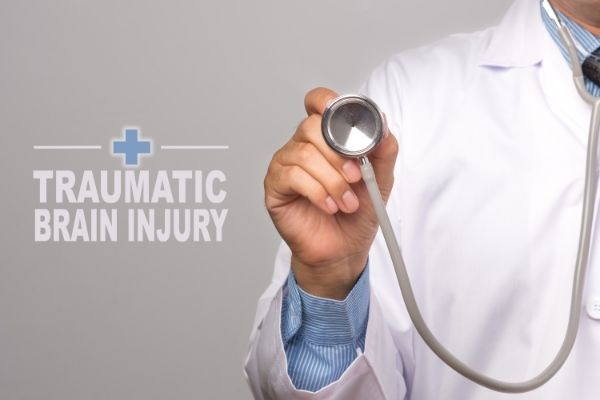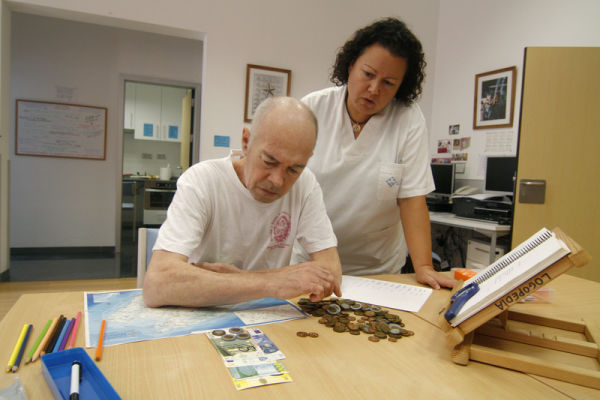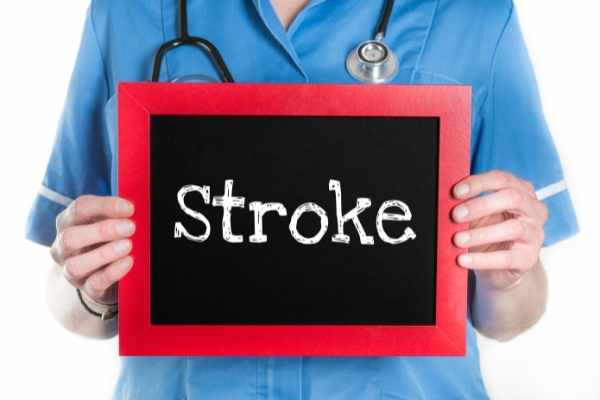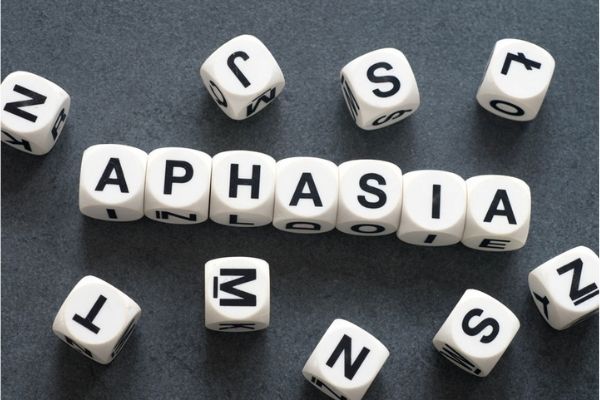Aphasia is an acquired language disorder that affects all aspects of communication. Aphasia is often caused by a stroke or traumatic brain injury (TBI) to the left side of the brain. The left side of the brain houses the language centers that enable us to comprehend and produce speech.
The area or areas of the brain affected by the stroke determine what communication deficits the person will experience. The language difficulties could range from very mild to severe. It is important to note that not only comprehension and production of speech are affected but also reading and writing modalities are often impaired.
“These impairments can make even the most straightforward attempt to communicate with others incredibly frustrating.“
Often once the stroke survivor’s physical health is stabilized following a stroke, the physical and motor impairments are the prime focus. Things like sitting up, walking, feeding, and swallowing usually become the priority. Once improvement in those areas begins to occur, communication abilities often become the focus of recovery when a person cannot express the most basic wants, needs, and thoughts. In many instances, people feel uncomfortable interacting with someone who struggles to understand and communicate.
Well-intended family and friends may do things like talk very loudly or talk for the person with aphasia, thinking that this is helpful. Unfortunately, that only contributes to the frustration that persons with aphasia often experience and may lead them to become more isolated and hesitant to participate in social interactions.
Withdrawing from communication opportunities, in turn, deprives them of the kind of stimulation that could help improve their communication abilities. The feelings of a person with aphasia towards interacting with others may have a very significant impact on their social network and, consequently, the likelihood they will become socially isolated from family and friends.
Fortunately, there are lots of support groups available to persons with aphasia in some areas of the USA. Also, many online groups offer virtual meet-ups, resources, and information that make it easier to connect with others. These groups provide things like practical medical advice, product recommendation, and, most importantly, moral support.
Most people have never heard the word aphasia when they are diagnosed. The time at the hospital is often filled with overwhelming amounts of information and a lack of guidance for both stroke survivors and their loved ones. This is why online and community support groups are so significant in establishing new connections and helping to maintain existing ones. And while these support groups are vital, what about communication in everyday life of an aphasic person? There are strategies that friends and family can use to make communication flow more easily.
There are several different types of aphasia. Language problems are directly associated with severity and aphasia type. Therefore, efficient communication strategies will vary from person to person. However, there are some basic approaches that loved ones can employ no matter what kind of aphasia the individual is experiencing. Talking slowly is one such approach. This allows for extra time for processing information.
Also, when one person, rather than multiple ones, speaks at a time, it is easier for the person with aphasia to follow a conversation. Sudden shifts in conversation topics should be avoided. Whenever possible, simple yes/no questions should be used during interactions. Another essential thing to remember is to use written words and drawings along with gestures to help get the message across. This can be done by all parties, including the person with aphasia. In addition, allowing the person with aphasia ample time to respond and gather their thoughts is just as crucial as any suggestions mentioned above.
Finally, it may be helpful for those suffering from aphasia to carry a card in their wallet or perhaps have a message on their cell phone explaining their disability. This will decrease frustration during communication exchanges and increase the awareness of aphasia to others.
Whether simple or complex, social interactions cause a great deal of anxiety for some people who have aphasia. Hopefully, as they experience success in communicating, they will gain confidence and begin to figure out strategies for more successful communication. Undoubtedly, aphasia affects all social interactions. This is why employing some of the aforementioned methods will positively impact communication in all settings.
Patience, understanding, compassion, and resourcefulness are keys to easing social interactions for persons with aphasia and their family and friends.





